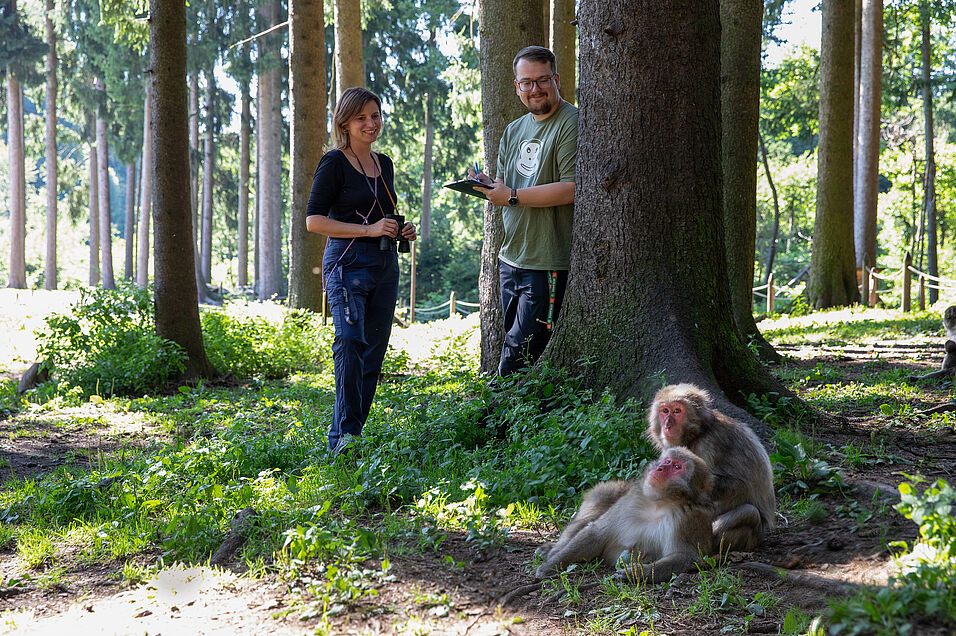The SMART MONKEY LAB represents a collaborative effort between biologists from the University of Vienna, geo-IT scientists from the Carinthia University of Applied Sciences (SIENA group) and international experts, including partners from the USA and Japan. The aim is to bridge the gap between traditional behavioural research and digital technologies. Through advances in digital data collection, social network analysis, and AI-driven facial recognition, researchers aim to gain deeper insights into the intricate social structures of Japanese macaques.
Affenberg Landskron, a four-hectar large forest, has been a popular tourist destination in Landskron/Villach for 28 years, attracting up to 150,000 visitors each season. Within this habitat, Japanese macaques display sophisticated social behaviours, forming complex networks of social relationships. These social structures are constantly changing due to various processes and environmental factors affecting a population.
However, studying these group dynamics is challenging, requiring the accurate identification of all animals in a group and the continuous observation of specific behavioural patterns over a long period of time. In practice, this means very precise observations and experienced researchers who have to devote a lot of time and effort to these investigations. Dr Lena Pflüger explains that digital technology could help by creating a database with individual information about each monkey, using drones to monitor the animals non-invasively, and using AI-assisted facial recognition to monitor the monkeys' social network more effectively.
Prof. Michael Huffman from Kyoto University in Japan concludes: "This project, the Smart Monkey lab, I think, is very unique and it creates an important bridge between basic behavioural research and state of the art quantitative, artificial intelligence-based, digital technology. [...] The project is going to lead to some very significant developments and some exciting, new, innovative technologies that can not only change the way we do science, but also how we view the lives of primates."
The project "SMART MONKEY LAB - Novel digital technologies for behavioural research of Japanese macaques" started in April 2023 and will last 3 years. It is funded by the Austrian Research Promotion Agency (FFG) as part of the BRIDGE programme, reflecting recognition of its potential to make ground-breaking discoveries in primate research. Through this endeavour, the researchers aim not only to advance scientific knowledge, but also to contribute to conservation efforts.
Further information:



